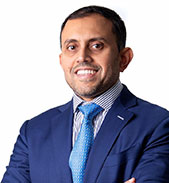INVITING APPLICATIONS
14th SSF EXCELLENCE AWARDS & RECOGNITION – 2025
LAST DATE: JUL-25 | APPLY NOW
In Physics, it is not possible to measure the location and the velocity of a subatomic particle simultaneously. Capability Management is quite similar, with the emergence of BPM as a critical need for business agility today. By the time you have got to know what it is all about, it has evolved further. A Role defined a year ago is already outdated. Or, the demands from the roles have changed. With the adoption of BPM, ‘Dynamic Talent Management’ becomes the mantra to reshape the roles for the new world.
Strategizing and Executing the Business Process Management (BPM) Initiatives call for new orientations and focus on renewed leadership skills. There is a need for a holistic approach to talent management and leadership development which requires structured skill development with a continuous review to manage in this ever-changing environment.
New World Skills for BPM
Soft skills/leadership skills focus on all-round personality development, including communication, presentation and interpersonal. Leadership skills focus on developing people management and enhancing analytical skills to make faster decisions, sometimes with limited information and data.
BPM organizations require a holistic approach to talent management
and capability development which includes all four areas of
development: (1) Soft skills/leadership skills, (2) Subject matter skills (eg:
Accounting, Actuarial, Healthcare), (3) Industry domain knowledge, and
(4) technology skills.
Subject matter skills have always been important in the BPM industry. However, with changing environment, this assumes even more importance, since this needs to be combined with quality and project management. Whether it is transaction processing or analytics, BPM talent should develop and nurture a good domain understanding of business and industry.
Lastly, there is a much greater focus on developing technology skills, not just limited to enterprise systems but on workflow tools, document management systems etc.
Skilling Differently
Right from the inception, which is at the beginning of the change management (e.g. migrating processes) the knowledge transfer requires a deep understanding of the domain, the business situation, and the process, backed up with a sharp insight around operational realities. There is a constant need for re-invention – ‘tenured’ employees need to becoming ‘new’ employees due to the constant change in the customer requirements, technology changes, increasing need for analytics and value added services. In this scenario, re-skilling, up-skilling & cross-skilling become critical.
Leadership Development in the BPM space necessitates a critical
convergence of 3 fundamental areas – Domain Knowledge, Operational
Excellence, and Learning Expertise.
New Orientation
The leaders and people at Shared Services need to go beyond the functional orientation to many other dimensions that are unique to this space.
The focus and requirements encompass process orientation,
metrics orientation, service orientation, customer orientation,
and business orientation.
There is a need to do a baselining of the current capabilities with the new demands. Simply put, this means
- understanding of business goals and the linked levels of desired performance in KPAs,
- assessing the current performance and gaps between desired and current,
- converting the performance gap into measurable units of skill, knowledge and behaviors; which can result into a predictable performance outcome, and
- being able to show benefits in clear monetary or financial terms.
Customer Demands
The Customer – Supplier relationship in SSCs will need to be continued to be focused, while evolving a partnership with customers. The Customers require metrics not just to demonstrate the efficiencies but in seeking greater value from the providers. Therefore, many Shared Service Centres are now focusing their efforts on not just processing but also in reducing financial leakage or missed opportunities and assisting in improving controls & compliance framework.
To deliver these new desired customer expectations, the talent in SSCs has to be significantly up skilled and upgraded. They also have to develop a deep domain understanding of their client’s industry & business. Close coordination between interdependent functions, setting up and accurately monitoring metrics and analytics are essential for effective service delivery.
Technological Impact
Advancement in technology, proliferation of data, and affordable cost of virtual or cloud technology infrastructure is leading to increased adoption of technology across enterprises. Many of the routine transaction intensive processes or customer service processes which in the past required human intervention or interactions are now largely being automated. In this new digital world, BPM organizations will either be managing exceptions (tasks that technology could not support or accurately process) or delivering highly specialized knowledge intensive processes. Both of these outcomes will demand a higher degree of skill than transaction processing. Exception Management requires not only a higher degree of problem-solving capabilities, it also requires in many cases, cross functional knowledge and deep knowledge of industry specific processes.
Proficiency with the use of technology and the ability to deal
with data driven analysis will become highly sought-after skills
across the BPM spectrum.
Developing Leaders
While focusing on functional, domain & operational excellence, it is imperative for BPM leaders to constantly focus on developing leaders who can manage teams and interact with customer. There needs to be a structured ‘learning path’ drawn up against key leaders, and there needs to be a strong focus on a comprehensive blend of development – classroom, experiential (such as job rotations), project-based learning, etc.
BPM Leaders are now taking the challenge of talent and leadership development and are making focussed efforts in knowledge and capability development.
This will eventually become the true differentiator to convert
‘Transition to Transformation’.
ABOUT THE AUTHORS

Sanjay Dutt
Sanjay Dutt has over 24 years of experience in the industry and is well recognized for his work in linking learning to business impact and his expertise around driving organizational strategies through Learning & Capability Development.
Sanjay leads the Capability Development function at EXL globally and spearheads many key organizational development initiatives in the organization. He also provides leadership to several key HR initiatives in India and across the globe. He has been responsible for setting up the EXL Center for Talent, establishing several Academies, launching and managing the program for our High Potentials and focused interventions to enhance Productivity, Customer Experience and Sales Effectiveness.
Prior to joining EXL, Sanjay was a Partner at Accenture, where he was leading Capability Development for their Outsourcing organization and was part of their India Leadership Team. Earlier, he worked for seven years with American Express where he was in a global leadership role around Performance Enhancement & Training.

Narasimha Kini
Global Business Leader | CFO Advisory | Digital Transformation
Narasimha Kini has over twenty five years of experience in business management, risk and financial management, regulatory compliance and business & finance transformation. Currently he is the Global Head of Finance & Accounting business. He led the successful acquisition and integration of a 3,500 people+ F&A outsourcing service provider. In his earlier role, Kini incubated and grew a high impact Finance Transformation business from zero base to a 250+ consultants with some of the F500 clients. As part of the leadership team of an early start up company, he led & supported various strategic initiatives, including raising venture capital, strategic sale of the company & buy back and recapitalization.



 Ask an Expert
Ask an Expert



